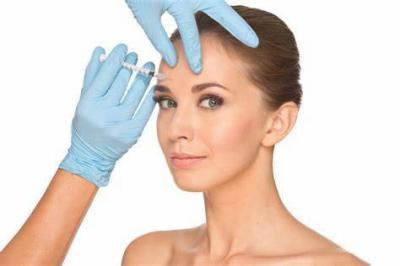Many girls and women start cosmetic procedures very early by getting filler and Botox injections. However, experts advise younger women against this practice. Louise Walsh, a 42-year-old registered nurse specializing in dermatology and aesthetics for 14 years, recommends against starting filler and Botox treatments for those under 30.
Botox is a drug made from toxins produced by the "Clostridium botulinum" bacteria, which can cause fatal food poisoning. Filler, also known as "cosmetic filler injections," is a soft tissue filler placed under the skin to help fill in existing wrinkles on the face and restore a smoother appearance. Most of these wrinkle fillers are temporary as they are eventually absorbed by the body.
Louise explained the risks associated with getting Botox and fillers at a young age:
1. **Lip Wrinkles**
The lip area is one of the first places people notice signs of aging, according to Louise, as the skin is delicate and prone to lines. She warned that repeated use of lip fillers at a young age may accelerate this aging process, as this procedure leads to a loss of skin elasticity over time, causing the lips and surrounding skin to stretch. Louise gave an example of how skin stretches: "When you gain a little weight and then lose it again, your skin may become a bit 'floppy' and not as tight as it was before. A similar, albeit lesser, effect will happen around the lips as well."
2. **Botox Immunity**
Louise cautioned that if one receives Botox frequently at a young age, its effectiveness may diminish over time. She said, "If you start getting Botox in your 20s and it’s effective for 10 years, then later in your 40s and 50s, when you actually need anti-aging treatment, it may not be effective." While it is not certain that this will happen, Louise indicated that this possibility is frequently discussed in the cosmetic field.
3. **Body Dysmorphic Disorder**
It's not only young skin that is at risk from filler and Botox injections; Louise is also concerned for their mental health. She stated that the constant pressure to receive injections could increase the risk of developing body dysmorphic disorder. Body dysmorphic disorder is a mental health condition in which a person spends a lot of time worrying about perceived flaws in their appearance that are often not noticeable to others. Although this disorder is common among teenagers and young adults, it can affect all age groups, according to guidelines from the National Health Service (NHS). It affects both men and women.




